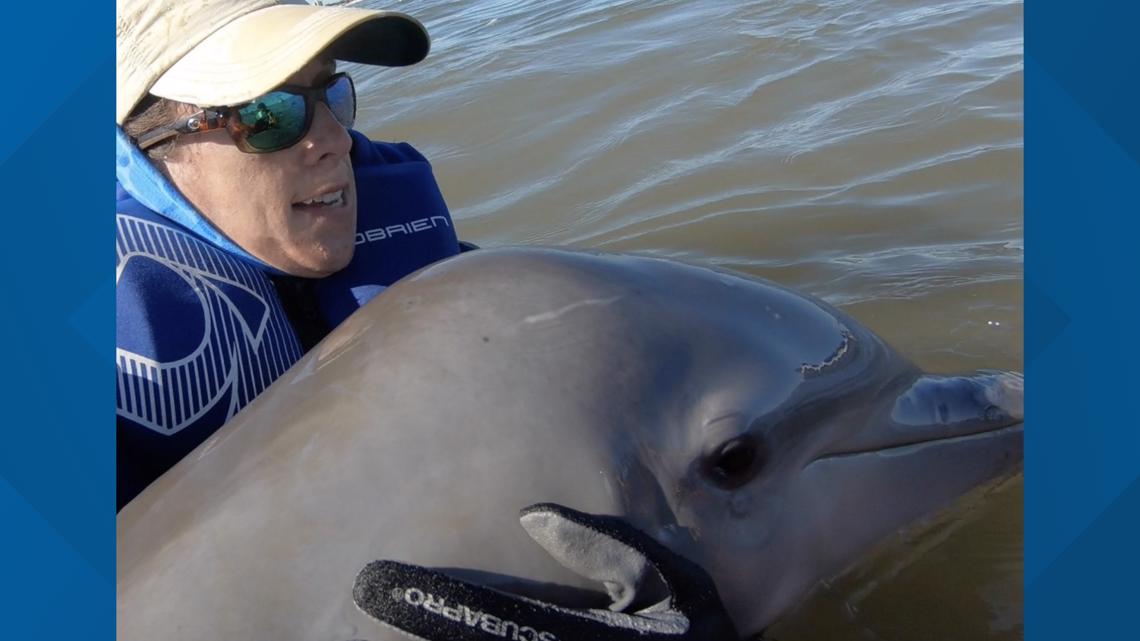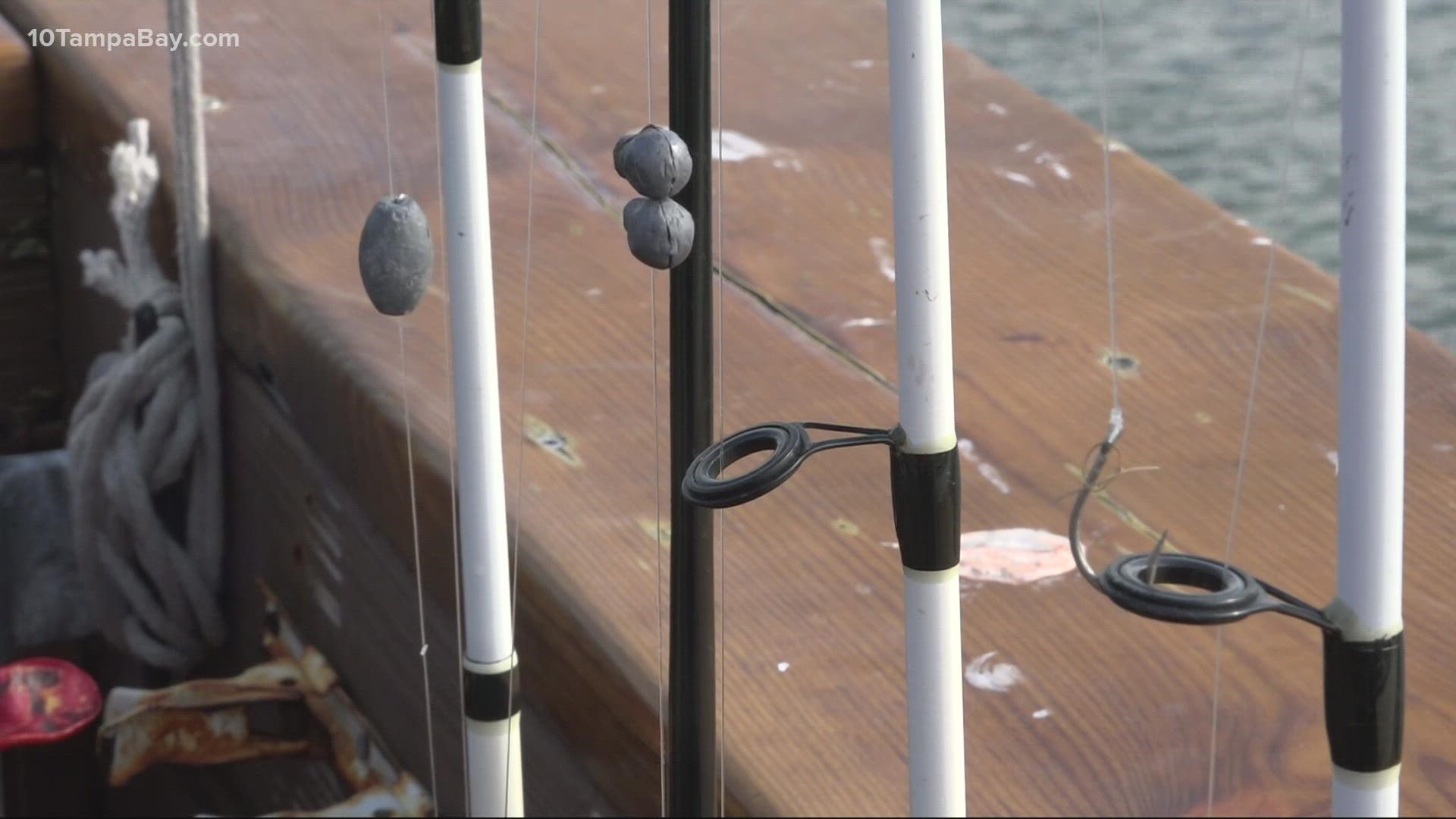CLEARWATER, Fla. — Marine life and fishing experts have urged people who love fishing to be mindful about how they dispose of their used fishing lines and gear.
They are using the mantra "Stow It, Don't Throw It" as a way to help people remember what to do when it's time to throw away fishing equipment.
The move has come after a team of rescue biologists recently disentangled a 7-month-old dolphin from an old fishing line. They say it is not only fishing equipment that has ended up in our waterways and harmed marine life, it's human waste in general.
"This will wind up in the water and get caught on a rock or something and it would stretch out and then see life can actually come by it as they go through their day and I can get caught and wrapped around them," said Capt. Sherman Baldwin of Hart's Landing, Sarasota.
According to International Fund for Animal Welfare, around 300,000 whales and dolphins have died every year from being entangled or ingesting some kind of fishing gear.
The experts say many of those marine mammals along with other marine life, including birds, are increasingly getting caught in especially fishing lines and nets.


"It could get tangled on the foot of say a pelican, and until man intervenes and removes it off from the pelican, it can actually kill the animal," Baldwin said.
Last week, a rescue team made up of biologists from the Sarasota Dolphin Program, Florida Fish and Wildlife, the National Oceanic and Atmospheric Administration and Clear Water Marine Aquarium freed a dolphin calf which had been entangled in the improperly discarded monofilament fishing line.
The experts said the dolphin was entangled for more than a month and was fortunate that it did not die. According to them, it had sustained life-threatening injuries to its dorsal fin.
"So we are monitoring her daily to make sure her condition is improving, to make sure she stays with mom. She was quite thin, so hopefully, this will help her finally improve. We already saw an improvement in her ability to swim without all that gear attached. So this is just one case and there are many cases of entangled animals," said Lauren Brandkamp, senior rescue biologist at Clearwater Marine Aquarium.
Early this month, a Miami-Dade police officer rescued a dolphin that was trapped in a fishing net. The officer was able to use a pocket knife to free the dolphin.
Last year, a Sea turtle which was also entangled in a fishing line was rehabilitated and released by the aquarium.
Hundreds of volunteers have over the years helped to clear marine debris and derelict crab traps along Florida's coastline to prevent marine life from being harmed by them. Last week, the Clearwater Marine Aquarium partnered with FWC, Ocean Aid 360 and Tampa Bay Watch to bring 102 volunteers together to help with their cleaning efforts. They collected 4,480 pounds of debris and bad traps at Tampa Bay alone
"In Florida, there's a lot of fishing activity and we have animals with high sight visibility so they like to stay in the area. They're interacting with people and crossing paths of fishermen and with boaters a lot more often than animals that are offshore," said Brandkamp.
The experts say when a fishing line runs its course, they say to stow it away instead of throwing it out improperly. They say you can cut up the fishing line and put in a container before recycling it so that it doesn't get picked up by wind, birds or end up in the ocean.
Fishline disposal chutes are now becoming common place in many popular fishing points and beaches.
"Just wind it up in a ball and keep it minimized and then dispose of it in the unit," Baldwin said
Marine mammal experts say catch-and-release interventions are dangerous for both the dolphin and rescue teams and should only be done as a last resort.
To learn how to recycle your old fishing gear click here.

